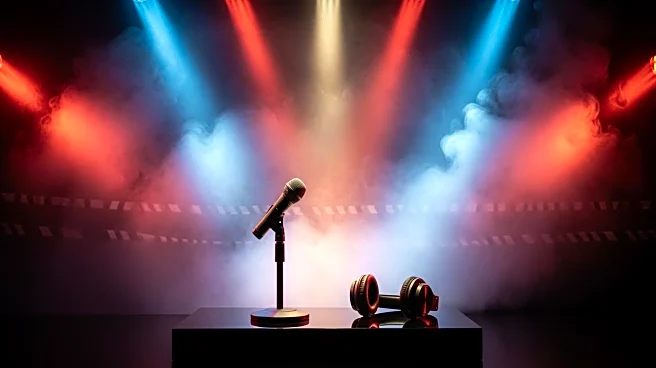Rapid Read • 8 min read
Pop Mart, the creator of the popular Labubu plush doll, has filed a lawsuit against 7-Eleven Inc. and seven of its California convenience stores. The lawsuit, filed in the U.S. District Court for the Central District of California, alleges that these retailers are selling counterfeit versions of Pop Mart's products. The complaint names several entities operating 7-Eleven stores across California, including Mayer Brothers Group Inc. and HRBS Enterprises Inc. Pop Mart claims that the counterfeit dolls are of inferior quality and use identical or similar trademarks and packaging designs as the genuine products. The Labubu doll, part of Pop Mart's The Monsters series, has gained significant popularity, generating substantial revenue globally and in the U.S. Pop Mart seeks to halt the sale of these counterfeit dolls and demands damages and a recall of the merchandise.
AD
The lawsuit highlights the ongoing issue of counterfeit products in the retail industry, which can significantly impact brand reputation and consumer trust. For Pop Mart, the sale of counterfeit Labubu dolls not only threatens its revenue but also its brand integrity, as consumers may associate the inferior quality of the counterfeit products with the genuine brand. This case underscores the importance of intellectual property rights and the challenges companies face in protecting their trademarks and designs. If successful, Pop Mart's legal action could set a precedent for other companies facing similar issues, potentially leading to stricter enforcement against counterfeit goods in the U.S. retail market.
Pop Mart is seeking legal remedies to stop 7-Eleven and other defendants from selling counterfeit Labubu dolls and any goods imitating Pop Mart's trademarks. The lawsuit demands damages and a recall of all merchandise falsely claiming to be Pop Mart's products. The outcome of this case could influence future legal actions against counterfeit goods and impact how retailers manage and verify the authenticity of the products they sell. Stakeholders in the retail and toy industries will be closely monitoring the case for its implications on intellectual property enforcement.
The lawsuit against 7-Eleven raises broader questions about the ethical responsibilities of retailers in ensuring product authenticity. It also highlights the cultural impact of popular toy brands like Pop Mart, which have become viral phenomena and are subject to imitation. The case may prompt discussions on the need for more robust systems to prevent counterfeit products from entering the market, protecting both consumers and legitimate businesses.
AD
More Stories You Might Enjoy










